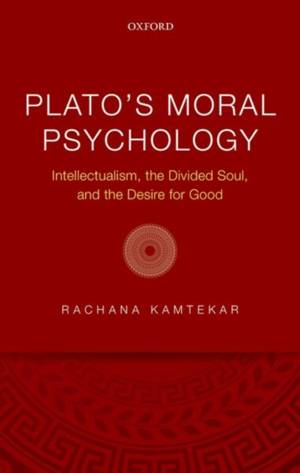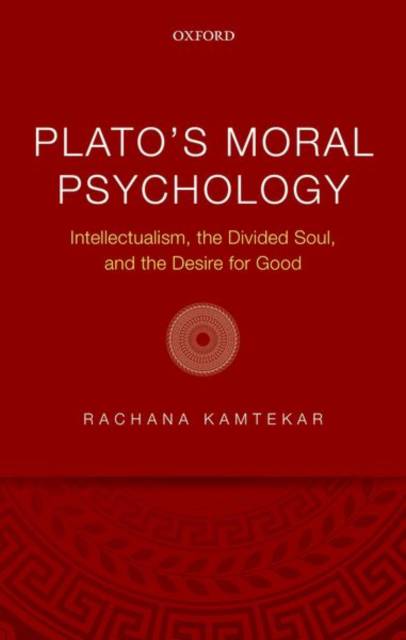
- Retrait gratuit dans votre magasin Club
- 7.000.000 titres dans notre catalogue
- Payer en toute sécurité
- Toujours un magasin près de chez vous
- Retrait gratuit dans votre magasin Club
- 7.000.000 titres dans notre catalogue
- Payer en toute sécurité
- Toujours un magasin près de chez vous
Plato's Moral Psychology
Intellectualism, the Divided Soul, and the Desire for Good
Rachana Kamtekar
Livre relié | Anglais
117,95 €
+ 235 points
Description
Plato's Moral Psychology is concerned with Plato's account of the soul and its impact on our living well or badly, virtuously or viciously. The core of Plato's moral psychology is his account of human motivation, and Rachana Kamtekar argues that throughout the dialogues Plato maintains that human beings have a natural desire for our own good, and that actions and conditions contrary to this desire are involuntary (from which follows the 'Socratic paradox' that wrongdoing is involuntary). Our natural desire for our own good may be manifested in different ways: by our pursuit of what we calculate is best, but also by our pursuit of pleasant or fine things - pursuits which Plato assigns to distinct parts of the soul. Kamtekar develops a very different interpretation of Plato's moral psychology from the mainstream interpretation, according to which Plato first proposes that human beings only do what we believe to be the best of the things we can do ('Socratic intellectualism') and then in the middle dialogues rejects this in favour of the view that the soul is divided into parts with some good-dependent and some good-independent motivations ('the divided soul').
Spécifications
Parties prenantes
- Auteur(s) :
- Editeur:
Contenu
- Nombre de pages :
- 240
- Langue:
- Anglais
Caractéristiques
- EAN:
- 9780198798446
- Date de parution :
- 07-02-18
- Format:
- Livre relié
- Format numérique:
- Genaaid
- Dimensions :
- 218 mm x 145 mm
- Poids :
- 408 g







